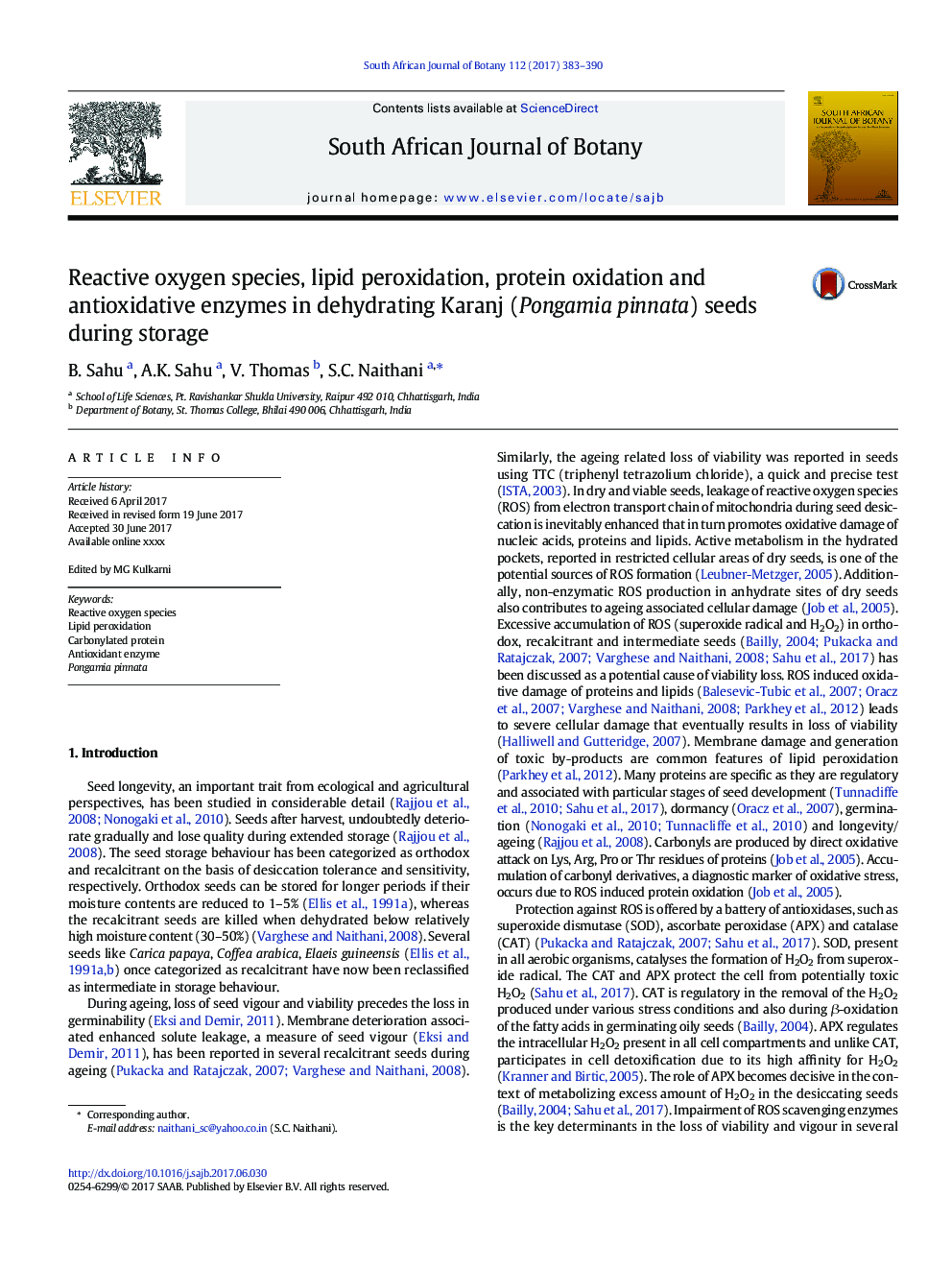| Article ID | Journal | Published Year | Pages | File Type |
|---|---|---|---|---|
| 5763195 | South African Journal of Botany | 2017 | 8 Pages |
Abstract
We investigated the storage behaviour of karanj (Pongamia pinnata L. Pierre), a very popular tree valued for medicinal and biodiesel use, seeds at ambient conditions (27-30 °C and RH 45%). Fresh karanj seeds, showing 100% germination were shed with water content of 0.22 gH2O gâ 1 DM. The karanj seeds exhibited intermediate storage behaviour as the percent germination dropped from 100 to 80% when the seeds desiccated below critical water content i.e. 0.11 gH2O gâ 1 DM. The loss of germination index (GI) and viability, and increase in solute leakage preceded the loss of germinability. Dehydration mediated decline in seed viability and vigour was negatively associated with accumulation of reactive oxygen species (ROS, like superoxide radical and H2O2). In dehydrating seeds, excess amounts of ROS mediated cellular damage by oxidizing biomolecules like lipids and proteins. The activities of antioxidant enzymes like superoxide dismutase (SOD), catalase (CAT) and ascorbate peroxidase (APX) were higher in the 100% viable seeds, and reduced with dehydration induced viability and vigour loss. The expression of specific isoenzymes of SOD (band 1) and CAT (band 2) detected only in seeds exhibiting higher germination, may be considered as markers for seed quality.
Keywords
Related Topics
Life Sciences
Agricultural and Biological Sciences
Agronomy and Crop Science
Authors
B. Sahu, A.K. Sahu, V. Thomas, S.C. Naithani,
